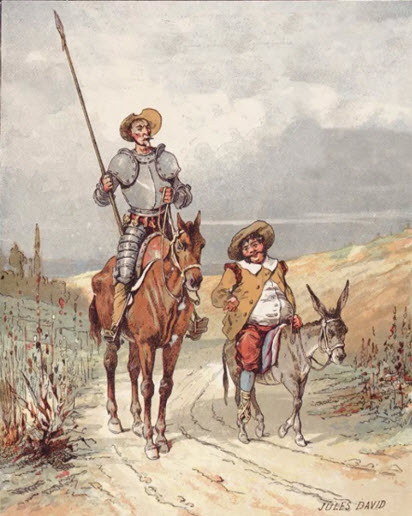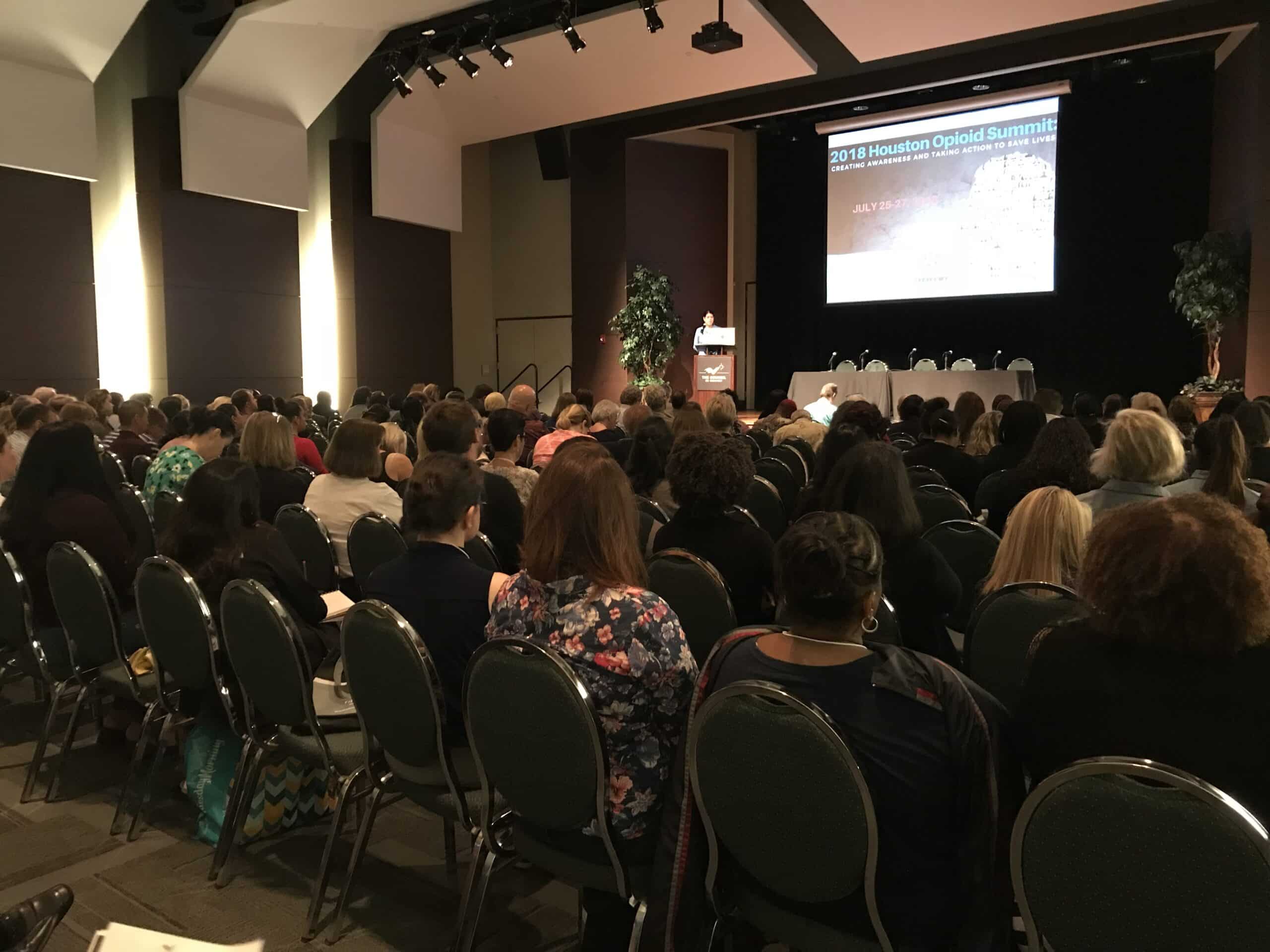Guest Blogger and long-time Council friend, Bob W. presents Part 35 of a series dealing with Alcoholism and Addiction from a Mystical, Mythological Perspective, reflecting Bob’s scholarly work as a Ph.D. in mythological studies.

In the early part of the 17th century, the Spanish author, Cervantes, penned his great story, Don Quixote. It is about a nobleman later in life who lapses into a series of fantasies about the days of knights, squires and the chivalrous behavior of noblemen to the people of the country. The Don is an elegant, athletic, if quite old, figure, who travels extensively dishing out a knightly view of the world. He is accompanied by a portly, lumpy squire named Sancho Panza, who dispenses wisdom in a wry, mostly low brow and satiric fashion. The story is long and detailed, and largely episodic, but it is wonderfully amusing.
One element that keeps repeating itself is the Don’s fascination with a peasant girl whom he christens Dulcinea and fantasizes that she is a wondrous princess with whom he must connect. Cervantes quotes the Don saying, “Her name is Dulcinea…her rank must be at least that of a princess, since she is my queen and lady, and her beauty superhuman, since all the impossible and fanciful attributes of beauty which the poets apply to their ladies are verified in her.”
Through a number of episodes, the fantasy that is Dulcinea reappears and the Don is further smitten with her, but he never achieves his desired connection with this love of his life. The story ends with the Don failing to ever connect with his fantasy. For us alcoholics, Dulcinea is like that elusive forever-high that we pursue in our drinking. It is the fantasy that, with continued drinking beyond the initial high, we will attain a serenity that will last forever.
Those of us with lifetimes of dealing in the viselike grip of alcoholism and addiction know that many of us do not recover. Many prefer to stay and live in the fantastical world of the recurring alcoholic stupor. It is a world of tragedy and loss which many times ends quite catastrophically. Their pursuit of a “Dulcinea” is a hollow quest that only yields more and more tragedy, an ultimate descent into disaster.
Reading Don Quixote, seeing the energy of his quest and feeling the anxiety of his failure to achieve Dulcinea, rings true for this alcoholic. Dulcinea was, in reality, just a common peasant girl of no particular beauty. For us recovering alcoholics in sobriety, she can be seen in just such a real world view. For us, the achievement of a conquest over alcohol comes in seeing the world for what it really is, every day, and in accepting the world outside the fantasy of drink and drugs.
In time, ultimately, for those of us in recovery, that world without drink and drugs finally does take on a ravenous beauty…and it is one that ultimately overwhelms the fantasy of Dulcinea.

 For two full days, July 26th and 27th, more than 225 people packed the conference rooms and other venues at The Council on Recovery for the 2018 Houston Opioid Summit. In keynote addresses, panel discussions, breakout sessions, round-table discussions, and informal networking, participants gained new insights and awareness of the opioid epidemic. Representing the medical, treatment, recovery, legal, law enforcement, academic, and media sectors, Opioid Summit attendees also discussed viable and immediately actionable solutions for dealing with the crisis.
For two full days, July 26th and 27th, more than 225 people packed the conference rooms and other venues at The Council on Recovery for the 2018 Houston Opioid Summit. In keynote addresses, panel discussions, breakout sessions, round-table discussions, and informal networking, participants gained new insights and awareness of the opioid epidemic. Representing the medical, treatment, recovery, legal, law enforcement, academic, and media sectors, Opioid Summit attendees also discussed viable and immediately actionable solutions for dealing with the crisis.